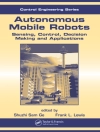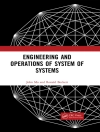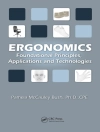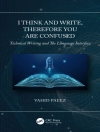This book focuses on the theory, development, novel techniques, and smart solutions in data analytics for intelligent systems that capture behaviours in complex environments. The book will provide beginners with a single platform to explore a variety of recent data analytics techniques for different types of data – images, videos, numerical etc. for better decision-making and problem solving for a range of applications such as computer vision, biomedical engineering, image processing, speech signal processing, intelligent systems, fault analysis and detection. In today’s world, incorporation of artificial intelligence with machine learning, ensemble learning, deep learning, transfer learning and reinforcement learning has a variety of applications. This book focuses on the various advanced techniques in data analytics that can be used in different domains to solve real-time problems.
Key Features:
- Features a wide range of data analytics methods for Intelligent Systems in one resource.
- Focus on applications.
- Includes application in a broad range of fields.
Table of Content
Preface
Acknowledgements
Editor biographies
List of contributors
Contributor biographies
A precise ECG QRS complex detector using a WOA optimized fractional-order digital differentiator
Focal and non-focal EEG signal classification using the Wigner–Ville distribution and deep feature extraction
Multi-channel EEG-based affective emotion identification using a dual-stage filtering approach
Variational mode decomposition based entropy features for classification of myopathy, neuropathy, and normal EMG signals
Epileptic EEG signal classification using wavelet transform and SVM
Imbalanced class problem analysis for lung cancer detection using convolutional neural networks
An end-to-end content-aware generative adversarial network based method for multimodal medical image fusion
Infrared thermography in diagnosing macular edema
Variants of generative adversarial networks for underwater image enhancement
Leveraging knowledge graphs for the analysis and recommendation of jobs
A recommender system based on variants of singular value decomposition
Misleading multimodal news dataset for detecting fraudulent content
Structural crack detection, segmentation, and classification: a review
A systematic review of fault detection in hardware and software systems
ACPSOD-Net: a deep atrous convolution pooling based network for salient object detection
About the author
Dr. Sachin Taran is a motivated Teaching Professional with approximately twelve years of teaching and research experience in Electronics and Communication Engineering. Dr. Taran is currently working as an Assistant Professor in the Department of Electronics and Communication Engineering, Delhi Technological University (DTU), Delhi. He received Ph.D. degree from the Indian Institute of Information Technology, Design and Manufacturing, Jabalpur, India, and done Postdoc from the Nanyang Technological University (NTU) Singapore. Dr. Taran served as an Assistant Professor at the Department of Electronics and Communication at, Shangvi Innovative Academy, Indore, India during 2009-2010. He served as an Assistant Professor at the Department of Electronics and Communication at Medicaps University, Indore, India during 2010-2015. His research interests include artificial intelligence, signal processing, time-frequency analysis, and machine learning. He has been awarded with “Commendable Research Award” in year 2020, 2021 and 2022 by Delhi Technological University, Delhi, India. He has authored/co-authored 46 research articles in various reputed international publishers’ journals, such as IEEE, Elsevier, Springer, IET, and IOP. His last five-year citations are 1269 with h-index 19 and i-10-index 28. Dr. Taran also served as a technical reviewer of leading international journals of IEEE, Elsevier, Springer, and IET etc.
Dr. Chhavi Dhiman received the B.Tech. from Indira Gandhi Delhi Technological University for Women (IGDTUW) (Formerly known as IGIT, GGSIPU), Delhi, India, in 2011, M.Tech. and Ph.D. from Delhi Technological University (DTU) Delhi, India, in 2014 and 2019 respectively. She is currently working as an Assistant Professor in the Department of Electronics and Communication Engineering, Delhi Technological University. Her research interests include computer vision, deep learning, Pattern Recognition, Image Processing, Human action and activity recognition. She has been awarded with “Commendable Research Award”, “Premium Research Award” in year 2020, and 2021 respectively by Delhi Technological University, Delhi, India. She is a reviewer of various Transactions and journals of IEEE, IET, and Elsevier. She serves as Subject Matter Expert at TCSions, since 2021. Her last 5-year citations are 564 with h-index of 9.
Manjeet Kumar received the B.Tech degree in Electronics and Telecommunication Engineering from Kurukshetra University, Kurukshetra, India in 2008, and the M.Tech degree in Signal Processing from Guru Gobind Singh Indraprastha University, Delhi, India, in 2011, and the Ph.D. degree in from the Department of Electronics and Communication Engineering, Netaji Subhas Institute of Technology (NSIT), Delhi affiliated to University of Delhi, India, in 2017. He served as Assistant Professor the department of Electronics and Communication Engineering, Bennett University, Greater Noida from June 2016 to July 2020. From July 2020, he has been working as Assistant Professor in the department of Electronics and Communication Engineering at Delhi Technological University, Delhi. He has authored more than fifty-five research articles and thirty-five conference papers in reputed international journals and conferences. He also served as a reviewer in many International Journals. His research interests include Signal processing, Biomedical signal processing, Image processing, Fractional systems, Optimization algorithms, Nature-inspired algorithms, Artificial Intelligence in Healthcare, Signal analysis using Wavelet Transform, Wavelet filter banks, Adaptive filtering, Linear and nonlinear system identification, Healthcare assistive techniques, and Low-power biomedical circuit design, ECG detection, ECG Classification, PPG Signal Analysis, Heart rate estimation and Blood pressure estimation, Non-Stationary signal analysis, Io MT and Analog circuit design. He has been awarded with “Premier Research award” in 2022 and “Commendable Research Award” in 2021 and 2022 by Delhi Technological University, Delhi, India. His total citations are 1599 with h-index 24 and i-10-index 43. He has been included in the prestigious list of the World’s Top 2% Scientists prepared by Stanford University for 2021, 2022, and 2023.












